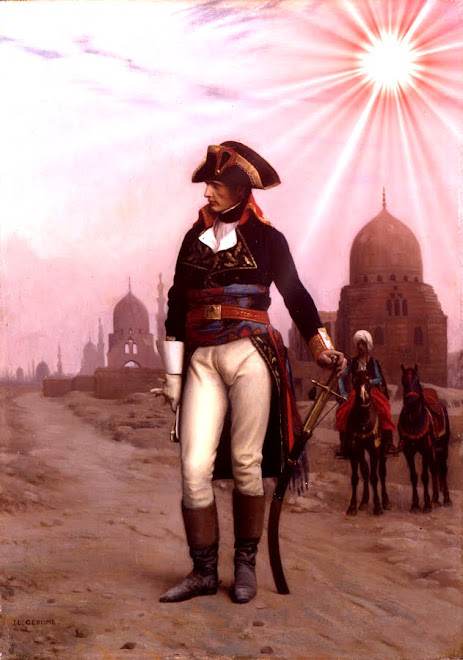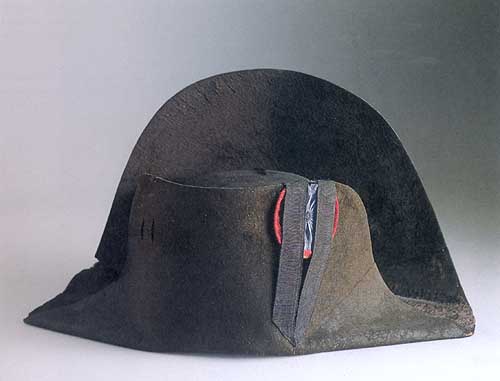 BATTLE OF BEREZINA by Peter von Hess (1792-1871) Wikipedia
BATTLE OF BEREZINA by Peter von Hess (1792-1871) Wikipedia
This is the best picture I have come across that shows the chaos at the fateful crossing of the River Berezina during Napoleon's retreat from Moscow. The irony here was that the water should have been frozen solid, particularly as 1812-1813 was the coldest Russian winter in a hundred years, but slightly milder weather had led to a thaw and the Grand Army was faced instead by a turbulent mass of ice filled water.
Already, the Russians were on the other side and two more Russian armies were closing in from behind. The situation for the French was dire in the extreme. Two-thirds of the army had succumbed to starvation and the cold and the coup de grace from Kutozov's men seemed imminent. As always during moments of extreme pressure and seemingly unassailable odds, Napoleon's intellect shone as sharply as the sparkling snow all around him. In a fantastic ruse he lured the Russians on the far bank south away from the intended crossing point where two bridges were thrown across the river by General Eble and his heroic men. In ice cold water they worked tirelessly, handed drinks by Napoleon himself. As they succumbed to the cold they floated away downstream and others took their place. What bravery, what self-sacrifice!
While Victor's gallant troops fended off the Russian pincer movement to the rear, the remnants of the Guard and the other corps filed silently across the river. Over 10,000 stragglers, not wanting to leave their firesides, were captured by the enemy. During a lull in the fighting, one bitter night, Sergeant Bourgogne, sick and weary, crossed one of the bridges with difficulty. As he wrote in his memoir of these events, he could nor understand why the stragglers did not heed his example - thousands could have saved themselves with one last desperate effort.
At another time, Jean-Roch Coignet found himself at one end of a bridge shepherding people across the river. A few yards away, opposite him at the same end, Davout the Iron Marshall was doing the same thing. Some years before, the Marshal had been instrumental in getting Coignet into Napoleon's elite Guard. Coignet was a titch, 'petiot' or 'a little un' as it is in French. Davout suggested he put two packs of playing cards in his shoes to beat the measure! Coignet did so and became the smallest ever member of the Guard. His bedmate back in France had nicknamed him his dwarf and Coignet, whose pal was the tallest man in the Regiment, could walk beneath his friend's outstretched arm!
This same man was later discovered by Napoleon himself on guard outside his bedchamber. The Emperor was gobsmacked (I don't know the French equivalent for that). The man was over six feet four with an eighteen inch bearskin on his head and a plume over a foot long stuck on the side of that. He was a veritable giant - well over eight feet tall in his full uniform. One important point here - the French foot was 3/4s of an inch longer than the English one. Hence Napoleon's height of 5'2" French equates to approx. 5 feet 6 inches. Napoleon was not small - he was the average height for his day. Indeed, when he stepped on board the Bellerophon in 1815 Captain Maitland stated he was about 5' 6" English in height.
So impressed was Napoleon with the man's height that he immediately sent him to his superior officer in order to turn him into a drum major so he could strut his stuff in front of a splendid military band. The man was fazed by the Emperor speaking to him in person and in his confusion he left his musket on the floor! When he came back for it, flushed with embarrassment Napoleon told him to leave it and that he would stand guard in his place.
So it was that le Petite Caporal or Le Tondu as the men in the Guard called him ( the 'shorn one' because he always had his hair cut short - his elite Guard had ponytails), stood guard for himself. Many apochryphal stories were told by the men of their Emperor standing guard for a weary soldier fallen asleep at his post - on this occasion he did stand guard for one of them. Just imagine what this did for the morale of the common French soldier. Napoleon was not just their hero - he was one of them.
C. John Tarttelin M.A. History
Author of The Real Napoleon - the Untold Story
A Souladream Production




Warfare is a fascinating subject. Despite the dubious morality of using violence to achieve personal or political aims. It remains that conflict has been used to do just that throughout recorded history.
ReplyDeleteYour article is very well done, a good read.